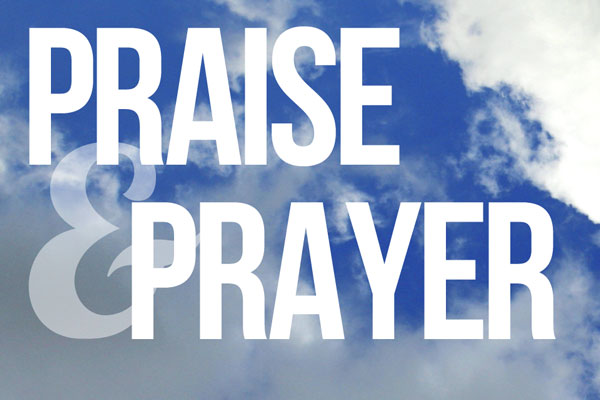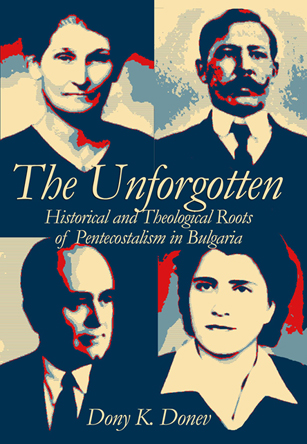2021 Prayer Meetings and Testimonies
A second round of 2021 elections in Bulgaria is scheduled for July 11, 2021. With this unstable political situation, our churches and adherents in the country are rightfully feeling the time for fervent prayer is at hand. As many other ministries, we have been too holding virtual prayer meetings online. But with everything happening in Bulgaria right now, it was much needed to dispatch team members in various directions as a response to several urgent prayer requests.
Several Mondays in a row now this summer, following the regularly scheduled Sunday services, our people have been gathering to pray and anoint one for another, serve Communion in key locations around the region. With pandemic regulations threatening to tighten once again after the elections, this small window of open air ministry has proven quite beneficial. Several healings were reported from small villages on the rout after prayer for the sick and anointing was conducted. In another place, a meeting place became available with the assistance of local regional government. The committee members that made this happened then requested prayer for their families, businesses and the whole village.
It will be an overstatement to say, that both prayer and answers have been much needed after the last year of pandemic shutdown. We are excited with anticipation for the upcoming Anointed Prayer Communion meetings scheduled for July 4th with a break for the July 11th elections, and then again with special gathering on the 19th. We continue to pray and wait on the Lord for provision of a more central location well our several ministries can gather and operate again independent from the ongoing government regulations.
Historic Trail of Tears Connects Polk Homeschool Families
Historic Trail of Tears Connects Polk Homeschool Families
by Dr. Dony & Kathryn Donev, M.A., LPC, RTP
During the past 10 years Polk County, TN has seen a shift in its demographics with an insurgence of families from New York, Florida, California and even Eastern Europe. The latter location is perhaps overlooked not officially recorded having the most complex reasoning behind the numbers. One explanation could be adoptions or perhaps another could be due to immigrants being attracted to Gateway Cities. Such are the larger towns as Bonita Springs, Cape Coral, Fort Myers and Sanibel areas of Florida. In California these would be Cerritos, South Gate, Long Beach or Sacramento. And of course New York City provides the ultimate gateway. Therefore, these individuals are simply recorded as being from these Gateways.
Many of these families which have sought refuge, so to speak, in rural areas are ones that homeschool. But this is not the reason for this article; for it is only natural that one leaving a busy urban area would naturally want to get away from all aspects of city life and create a more intimate learning experience for their children. Such is readily available through the natural amenities and safe seclusion along the original Trail of Tears which had many routes and roundup or dispersion points other than the three main roads which are thought of first. One of them just happens to be in Polk County, TN described below.
The Georgia Road or present day Federal Road was a route of the Trail of Tears with the Tellico Blockhouse as its starting point. The route ran from Niles Ferry on the Little Tennessee River near the present day U.S. Highway 411 Bridge, southward into Georgia. The road continued southward via the Federal Trail connecting to the North Old Tellico Highway past the present site of Coltharp School, intersected Tennessee Highway 68 and passed the site of the Nonaberg Church. East of Englewood, Tennessee it continued on the east side of McMinn Central High School and crossed Highway 411 near the railroad overpass. Along the west side of Etowah, the road continued near Cog Hill and the Hiwassee River near the mouth of Conasauga Creek where there was a ferry near the site of the John Hildebrand Mill. From the ferry on the Hiwassee River, the road ran through the site of the present courthouse in Benton, Tennessee. It continued south on Welcome Valley Road and then crossed the Ocoee River at the Hildebrand Landing. From this point, the road continued south and crossed U.S. Highway 64 where the Ocoee Church of God is currently located. Proceeding south near Old Fort, the route crossed U.S. Highway 411 and came to the Conasauga River at McNair Landing. Near the south end of the village of Tennga, Georgia stands a historic marker alongside Highway 411, which states the Old Federal Road was close to its path for the next twenty-five miles southward. This is some 15 miles from the historic Chief Vann Plantation. It would have been at this point in Tennga that the Trail of Tears would have taken a turn onto GA-2 passing the Praters Mill near Dalton Georgia to connect in Chattanooga.
The reason for this article is to make the connection which goes deeper than simply establishing the Hildebrand Crossing route with Welcome Valley and Old Federal roads as the connecting path of one of the last detachments of approximately 1,200 with the original Trail of Tears. A careful reader would quickly discern the obvious geosocial connection between the new homeschool families in the Polk area and the historical Trail of Tears, which was brought to light in a recent discovery in the Polk County TN Homeschool Network. Nearly a dozen of these families, which in the last decade made their journey to rural living in Polk County live nowhere else, but along the historic trail. Coincidence? Perhaps. Planned? Doubtfully so because most were not aware of this information as this route of the Trail is not a popular one and as such has remained virtually enigmatic. Now, we are in a quest for the logic behind such happening as well as to see if there are other Polk Homeschoolers that happen to also live along this route. If you have any contributing information to this ongoing project, we would love to hear from you. Visit us at www.PolkHomeschool.com or reach out to [email protected].
Brill’s Encyclopaedia of Global Pentecostalism
Brill’s Encyclopedia of Global Pentecostalism (BEGP) provides a comprehensive overview of worldwide Pentecostalism from a range of disciplinary perspectives. It offers analysis at the level of specific countries and regions, historical figures, movements and organizations, and particular topics and themes. The online version of the Encyclopedia is already available
35% Of Americans Believe Bible Study Cures Mental Illness in 2021
35% Of Americans Believe Bible Study Cures Mental Illness
To follow up on the previous statistics, over a third of Americans believe faith can help people overcome mental illness. Having open conversations about mental illness inchurch could encourage those dealing with it to seek help and counseling along with faith-based healing.
Facebook Is Still King Among Social Networks for Churches in 2021
Facebook Is Still King Among Social Networks
If your church is deciding on which social network to use, Facebook is still number one. In fact, Pew Research Center found that 68% of adults are Facebook users. The only other network that came close was YouTube at 40%. However, using both doesn’t hurt, especially if your church focuses on video content.
Don’t Count Out Instagram
Many church statistics focus mainly on Facebook for social media, but it’s important to not count out Instagram. Not only do 35% of adults use Instagram, but Pew also found that 71% of 18-24 year-olds use Instagram. If you’re trying to reach out to a younger audience, it’s worth expanding your social media strategy to include Instagram.
YouTube Works Well For Younger Members
Want to better engage your younger members or expand your reach to 18-24 year-olds? Pew found that 94% of people in that target demographic use YouTube regularly. Of course, 75% of adults overall use YouTube. So, it’s beneficial no matter what age you’re trying to reach. Consider YouTube for sermons, showing community outreach programs in action, Bible study sessions and even fun skits to show a humorous side to your church.
Mega Churches Aren’t Preferred in 2021
While mega churches seem to have it all, only 8% of all church goers attend one. Part of the reason is they’re just too big. However, they do have the benefit of having a budget that allows them to reach more people online than most smaller churches.
Why Americans Attend Church in 2021
This is probably one of the church statistics you didn’t even realize you wanted to know.Two-thirds of people in a Pew Research survey say they attend church for four main reasons:
- To become a better person (68%)
- To introduce faith to their kids (69%)
- To find personal comfort (66%)
- Grow closer to God (81%)
THIS JUST IN [hardcover]
The Unforgotten: Historical and Theological Roots of Pentecostalism in Bulgaria
SEE MORE at Amazon.com by clicking this link
NEW Istanbul canal to link Black and Marmara Seas
To the west of Istanbul, between the Black Sea and the Marmara Sea, lie diverse landscapes of forest, farms, marshes and ancient settlements. Following a curving line from north to south would connect you through the Terkos Lake, Sazlıdere stream and reservoir and Küçükçekmece lagoon, important water sources for migratory birds – not to mention the city’s residents.
This line, however, is also the path of Kanal İstanbul, a $12.6bn(£9.7bn) mega-infrastructure plan described by President Recep Tayyip Erdoğan as his “crazy project” when he first mentioned the idea in 2011.
Kanal İstanbul, approved by the environment ministry last month, would be a 45km (28 mile) shipping canal joining the Black Sea to the Marmara, running parallel to the Bosphorus strait, which already cuts through the centre of Istanbul. The government says the canal is needed to reduce water traffic through the city.
Critics – who include the mayor of Istanbul – warn of a great environmental cost, including the potential ecological destruction of the Marmara Sea. There is a delicate ecological balance between the Black Sea and the Marmara Sea, currently connected by the Bosphorus strait.
Because the Black Sea is 50cm higher than the Marmara, both the level and salinity density would change if the two were connected by the canal. Not only that, the flow of cellular organisms into the Marmara would eat up extra oxygen.
As Pentecostals historically…
As Pentecostals historically (and as a movement)
We have been looking for power when we should have been seeking after His presence
We have been looking for gifts and signs and wonders, when we should have been looking for fruits of the Spirit and of character
We have been looking for preachers and prophets to follow, when we should have been looking for God’s presence to abide in
We have been looking for prophetic words and utterance, when we should have been taking more time in personal prayer
We have been growing, when we should have been going
And going when we should have been learning in the Spirit
We have been looking for more ways to build, when we should have been looking for more ways to move and go
We have been looking for ways to influence the world, instead of looking to be uninfluenced by God
And in our desire to be leaders and influencers, we have forgotten how to be led by God
And for a long time as a movement, we have existed at the borderline, at the verge and at the danger of gaining our rightful place in human history, but loosing our royal position in the GLORY of GOD
BUT ONE THING WE DID GET RIGHT: The Baptism with the Holy Ghost (watch the full message)
Read also: Last Days Great REVIVAL
20 recent Pentecostal articles in light of the upcoming Pentecostal Sunday celebration:
- The Forgotten Azusa Street Mission: The Place where the First Pentecostals Met
- Diamonds in the Rough-N-Ready Pentecostal Series (Complete)
- 95th anniversary of the Pentecostal movement in Bulgaria
- Toward a Pentecostal Solution to the Refugee Crises in the European Union
- Historical and Doctrinal Formation of Holiness Teachings and Praxis among Bulgarian Pentecostals
- Pacifism as a Social Stand for Holiness among Early Bulgarian Pentecostals
- The Practice of Corporate Holiness within the Communion Service of Bulgarian Pentecostals
- Sanctification and Personal Holiness among Early Bulgarian Pentecostals
- First Pentecostal Missionaries to Bulgaria (1920)
- Historical and Doctrinal Formation of Holiness Teachings and Praxis among Bulgarian Pentecostals
- The Everlasting Gospel: The Significance of Eschatology in the Development of Pentecostal Thought
- Online Pentecostal Academic Journals
- What made us Pentecostal?
- Pentecostalism and Post-Modern Social Transformation
- Obama, Marxism and Pentecostal Identity
- Why I Decided to Publish Pentecostal Primitivism?
- Historic Pentecostal Revival Tour in Bulgaria Continues
- The Land of Pentecostals
- Pentecostal Theological Seminary Address
- A Truly Pentecostal Water Baptism






![51DUWeyraBL._SY344_PJlook-inside-v2,TopRight,1,0_SH20_BO1,204,203,200_[1]](https://cupandcross.com/wp-content/uploads/2014/04/51DUWeyraBL._SY344_PJlook-inside-v2TopRight10_SH20_BO1204203200_1.jpg)






